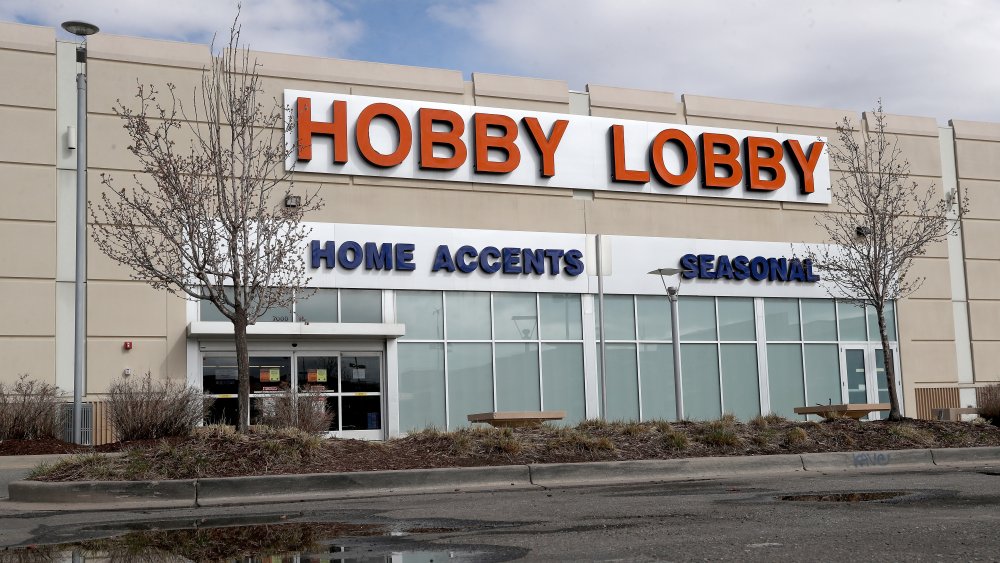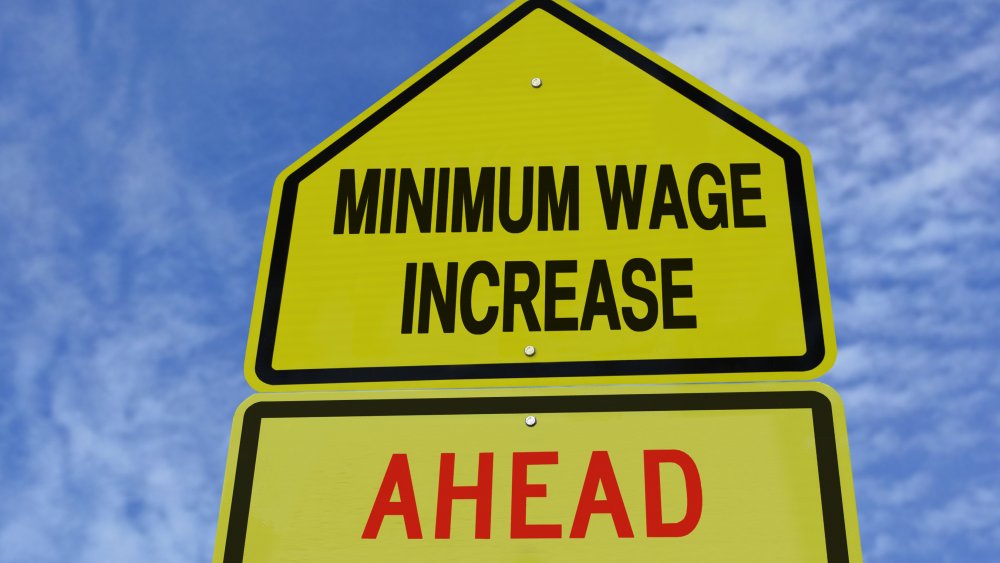The Real Reason Hobby Lobby Just Raised Its Minimum Wage
Earlier this week, Hobby Lobby announced that they would be raising minimum wage for full-time employees of the arts-and-crafts superstore from $15 to $17 starting October 1. In a press release announcing the change, CEO David Green explained, "Because this year has presented so many challenges to our employees, we are very happy that we are able to provide pay increases to thousands of our associates before the Christmas season" (via NY Post).
With a federal minimum wage stuck at a meager $7.25 for decades, it's hard to imagine anyone being able to live, let alone support a family, on those earnings. While many states and cities have enacted their own minimum wage legislation, factoring in inflation and cost of living, many others are still caught in a time warp that adopts the federal standard (via National Conference of State Legislatures). While the wage hike doesn't impact part-time Hobby Lobby employees currently making $11 per hour, both rates are well above the national average and put the craft chain among the highest-paying U.S. retailers (via CBS).
Hobby Lobby's pay increase could also improve their reputation
While altruism is a noble cause worthy of recognition, many critics of the notoriously conservative founder and CEO of Hobby Lobby think the wage increase could be a PR move to counter negative press. Most recently, a #BoycottHobbyLobby campaign from last week trended on social media after a photo went viral featuring a display in one of the store chains of decorative crafting letters arranged to read "USA Vote Trump" (via USA Today). In a highly criticized move, the chain also made waves earlier this year when they declared themselves an essential business and refused to close their stores nationwide. As the pandemic got worse, many stores were forced to close, resulting in thousands of employees being furloughed.
Whatever the motivation, the wage increase is certainly beneficial, and as Heidi Shierholz of the Economic Policy Institute and formerly the chief economist at the Labor Department in the Obama administration explained to CBS. "If this applies to a reasonable share of their low-wage workers, then that's really putting their minimum wage at a decent level, and that's a nice thing to see."

